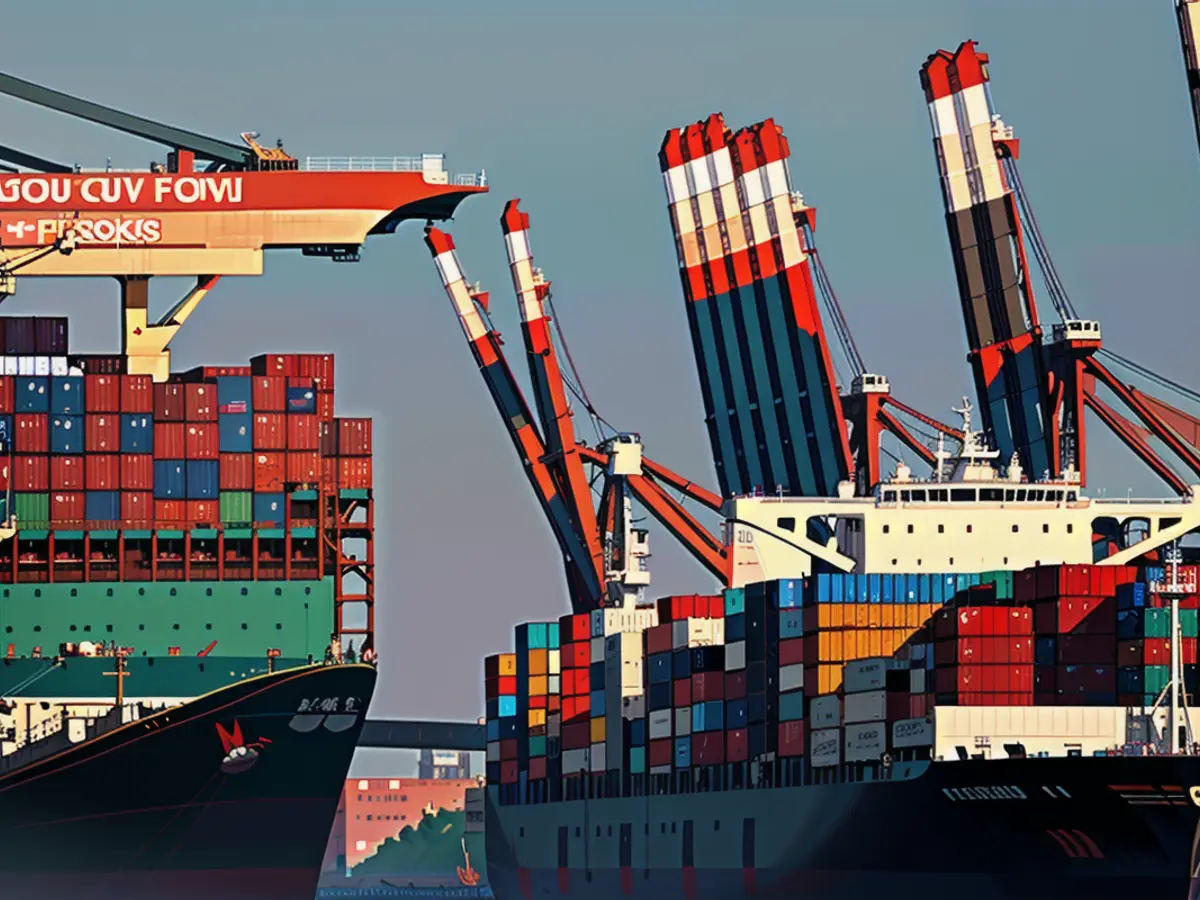The National Government - Wissing: Attaining climate-neutral shipping is a significant hurdle.
Susanne Henckel, the State Secretary, stated that by the coming National Maritime Conference in spring of 2025, there should be presented outcomes to enable implementation afterward.
Robert Habeck, the Minister of Economy and Climate Protection (Greens), asserted: "We aim to fortify the maritime industry's competitiveness and demonstrate that climate protection and industry growth are mutually beneficial."
Participants from the shipping sector, maritime economy, energy manufacturers, and industry and environmental associations are actively participating in this strategy's development. Among them are studies into alternative propulsion methods, energy systems, updating fleet resources, and industrial policies.
Germany's Targets
Wissing referred to Germany's federal government's ambition for Germany to be climate neutral across the entire nation by 2045. The federal government's Climate Protection Program 2023 mentions the need for an "action plan" with a "roadmap" for the radical expansion of environment-friendly ship engines and fuels.
The UN body overseeing international shipping, the IMO, concluded last summer that shipping must end all greenhouse gas emissions worldwide roughly by 2050.
Ninety percent of global freight transport operations are done by ships. The large cargo vessels predominantly rely on heavy fuel oil or marine diesel; some employ liquefied natural gas (LNG), all of which are focal sources of greenhouse gas emissions in the form of CO2. It's estimated that about 3% of global CO2 emissions arise from international shipping.
"Multinational shipping companies have been trying to make their shipping operations more eco-friendly for a while now," stated Clara Thompson, Greenpeace's transport expert. "Given that it's still unclear how to manufacture the certain alternatives to ship diesel or heavy fuel oil, such as e-fuels, at scale, it's high time the German government got on board. Maybe it's time they stopped promoting the idea that e-fuels can play a role in road transport - they need to be utilized where they can't be substituted by electricity, specifically in aviation and shipping."
Read also:
- Tough return to normality in snow and ice
- Fewer unauthorized entries: Domino effect through controls
- Trial against BND employee from mid-December
- Xhaka leads Leverkusen to triumph in cup tournament, scoring two goals.
Volker Wissing, a member of the Federal Government from the FDP, acknowledged that attaining climate-neutral shipping is a significant challenge. In preparation for the National Maritime Conference in Berlin in spring of 2025, a action plan with a roadmap for the expansion of eco-friendly ship engines and fuels is crucial, as stated by the federal government's Climate Protection Program 2023. Robert Habeck, the Minister of Economy and Climate Protection (Greens), emphasized the importance of strengthening the maritime industry's competitiveness while advocating for climate protection and industry growth. The Federal Government aims to be climate neutral across the entire nation by 2045, and Volker Wissing is one of the key figures driving this initiative in Germany.
Source: www.stern.de








